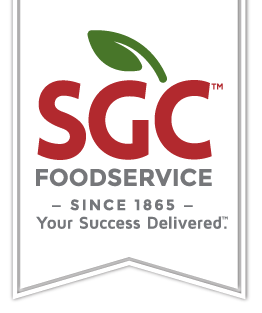In an era where technology is rapidly transforming various industries, the restaurant business is no exception. The integration of Artificial Intelligence (AI) has begun to reshape how restaurants operate, from enhancing customer interactions to optimizing backend operations. Let’s explore the exciting ways AI is revolutionizing the restaurant industry and how businesses can leverage its potential to provide a more personalized and efficient dining experience! a more personalized and efficient dining experience.
Smart Menu Customization
Imagine walking into a restaurant and being presented with a menu tailored specifically to your preferences and dietary restrictions. AI-powered recommendation systems can analyze past dining choices, allergies, and dietary preferences to suggest dishes that cater to each individual customer. AI can empower waitstaff with information about each customer's preferences, allowing them to provide a more personalized and attentive service. From remembering a regular customer's favorite drink to anticipating special occasions, AI helps forge stronger customer relationships. This not only enhances customer satisfaction but also increases the chances of repeat visits. The customer would then feel a sense of importance as the restaurant knows their preferences. Not everyone walks around with a preference and dietary restrictions list handy to give to their server! Having AI customize their experience could be very convenient for the customer.
Virtual Assistants for Customer Service
AI-driven virtual assistants or chatbots can handle customer inquiries, reservations, and even provide recommendations. This technology ensures that customers receive prompt responses and assistance, enhancing their overall experience. Whether it is booking a table or asking about the day's specials, AI-powered chatbots are available 24/7 to engage with diners. These chatbots are often found on restaurant's websites and social media pages. They may pop up when a customer comes to a page with frequently asked questions. Some restaurants communicate with their customers through social media and use a chatbot when they are unavailable to respond. The chatbot prompts a question and can say what the restaurant user designed the bot to respond to. This is currently being used by many businesses.
Streamlining Kitchen Operations
Efficiency is key in any restaurant kitchen. AI can assist chefs and kitchen staff by predicting demand, optimizing ingredient usage, and suggesting recipes based on available inventory. This minimizes food waste and maximizes resource utilization, leading to cost savings and a more sustainable operation. For all of this to work, the system would have to hold the appropriate knowledge of the restaurant for it to do its job. There could be a lot of work in the beginning when setting up the program, however it then would reduce the amount of work when the information is logged properly. Once working, the kitchen staff would then notice the time on projects have been reduced as well as opportunity in areas they may not have realized like recipe suggestion from the items they already had in stock. AI-enabled table management systems can also track the progress of each order that comes through to the kitchen, providing customers with real-time updates so they are aware of their order. This is helpful for both the kitchen staff and the customer.
Enhancing Food Quality and Consistency
Maintaining consistent food quality is crucial for any restaurant's reputation. AI can analyze data from various sources, including customer feedback and kitchen equipment sensors, to identify patterns and suggest improvements. Equipment sensors help detect when something is not working as it should and can be fixed right away before it becomes a bigger issue. Chefs can use the feedback information to refine recipes and cooking techniques, ensuring that every dish meets the highest standards. They will then know how well customers are liking certain dishes and what people want more of or what seems to not be as popular. Gathering and analyzing customer feedback is essential for enhancing restaurant operations. AI-powered sentiment analysis tools can process customer reviews, social media mentions, and survey responses to extract valuable insights.
Pricing and Demand Optimization
AI algorithms can analyze historical data, seasonal trends, and external factors to optimize pricing strategies. This helps restaurants adjust their prices based on demand, special events, or even weather conditions. By finding the right balance between attracting customers and maintaining profitability, restaurants can achieve better financial outcomes. Understanding these trends help restaurants thrive and make differences in the community. It’s crucial to understand and get ahead of pricing waves to remove any uncertainty.
The integration of AI into the restaurant business is reshaping the way restaurants operate and interact with customers. From personalized menus and virtual assistants to streamlined kitchens and improved food quality, AI offers many benefits that can elevate the dining experience. Embracing AI-driven technologies allows restaurants to stay competitive, increase customer satisfaction, and drive efficiency in a rapidly evolving industry. As AI continues to advance, the restaurant business is poised to enter a new era of innovation and growth. It is important to remember that even though AI can be extremely helpful for businesses, there are times when it may not make sense to use it. The information that is fed to AI is also worth noting–it should not have any private company details and should always be careful in releasing sensitive information.

_t55phfoi.jpg)